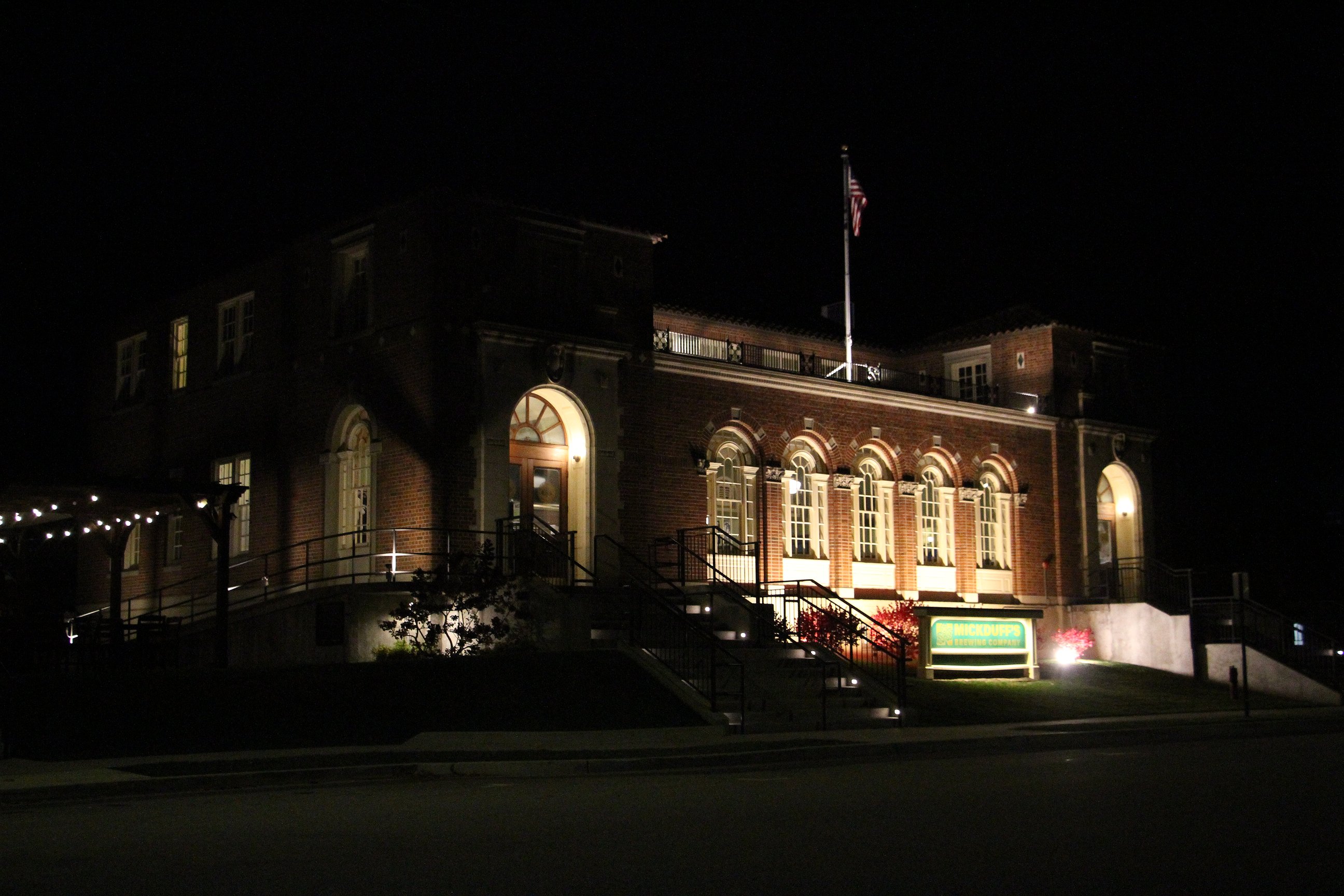Sandpoint’s specters — classic buildings may house more than just history
SANDPOINT — With a host of 100-year-old buildings and a storied past, it should be no surprise that there’s more to Sandpoint than meets the eye. As days grow colder and nights grow longer, it’s the perfect season to pursue poltergeists, seek spirits and go after ghosts. To begin, you might visit one of the many local sites said to be haunted by Sandpoint’s residents of days gone by — if you dare.
Depot phenomena
The Sandpoint train depot is among the town’s oldest remaining structures. Built in 1916, the gothic-style station’s arched windows and green tile roof alone should tell visitors it’s visited by more than bleary-eyed travelers.
According to a 2007 Daily Bee article by Bob and David Gunter, strange happenings have been known to occur in and around the depot. The article recounts the experience of a Sandpoint photographer who, when shooting the historic building, had an inexplicable encounter on the east-facing platform of the station.
After walking south past the second light post on the platform, the photographer stepped back to line up the shot and bumped into someone. “I turned around and said, ‘excuse me’ before I realized there was nothing there,” the photographer told the Gunters.
The story also describes a legend surrounding an old stairway leading from the lake to the depot. Sandpoint’s original nucleus was located east of Sand Creek; the downtown hub migrated to its current location after the Cedar Street Bridge was constructed.
According to the legend, visitors tracing the path traveled by Sandpoint’s original inhabitants might hear soft crying in the night. Walking down the first two steps of the crumbling stairway and stopping on the third will result in “a visitation” over the shoulder of the participant.
After almost a century of operation, the depot was threatened by a U.S. 95 expansion in the early 2000s. Sandpoint officials and residents rallied to protect the historic site, which was rehabilitated in 2015 at a cost of nearly $1 million.
Today, the train station is sandwiched between the U.S. 95 byway and a row of condominiums lining the shore of Lake Pend Oreille. The once bustling depot’s few visitors now come in the dead of night, when the east- and west-bound Amtrak trains stop briefly before echoing away into the Panhandle woods.
A not-so-quiet library
No catalog of Sandpoint’s historic sites would be complete without the old federal building at the corner of Alder Street and Second Avenue. Now home to MickDuff’s Brewing Company, the building opened in 1928 as Sandpoint’s post office and hub for federal government agencies.
The property’s looming stature and distinctive Spanish Colonial Revival architecture — complete with gargoyles — have made it a mainstay in downtown Sandpoint for close to a century.
In 1966, the building became the home of East Bonner County Library. Staff quickly began observing strange phenomena; according to the Gunters’ article, librarian Cynthia Wood recalled hearing footsteps in the fiction section after hours and noises in the building's basement.
The article also describes staff members hearing water run on and off from the sink in a locked janitor’s closet; when a librarian pressed her ear to the door, a loud knock from the other side startled her. After the door was finally opened, the librarians were stunned to discover nothing but old mops and an empty sink.
Paranormal happenings aside, several artifacts from the building’s days as a government center in a rough-and-tumble timber town have been discovered over the years. After the library moved to its current location, new owners of the property discovered a large, disused vault in 2001. With the combination lost to time, a locksmith was hired to unseal the strongroom. To the surprise of all, he discovered a tear gas booby trap embedded in the doorway, which was promptly disposed of by the sheriff’s department.
Phantom of the theater
Perhaps the most beloved of Sandpoint’s classic buildings is the Panida Theater. Opened in 1927, the opulent venue showed vaudeville and movies, and wowed visitors with its amenities and lavish design. Slowly, the Panida fell into disrepair and was eventually closed by the early 1980s.
According to the Gunters’ story, members of the Unicorn Theatre Players stored equipment in the Panida during its period of disuse. When passing down the central aisle of the decrepit theater, members of the troupe recalled a spine-tingling sensation of being unwelcome.
One performer visited the balcony during the Panida’s closure and heard footsteps approach from the stairway and creep steadily closer before stopping at her side. She felt a male presence; “it was like he had caught me going someplace I shouldn’t have been and was telling me to leave the balcony.”
In 1985, the community members revived the Panida as a nonprofit performing arts center. While the theater has hosted countless shows since, visitors continue to identify a spectral entity.
The Gunters’ article describes the account of Dave Nygren, a longtime lighting and staging technician at the theater. Like the performer, Nygren recalled being followed up the stairs to the balcony — only to turn around and find no one in sight.
In 2009, Jenn and Mike Deer of Inland Northwest Paranormal Research visited the Panida to investigate the reports. David Gunter’s Oct. 30 Daily Bee story describes the venture and its outcomes.
After carefully rigging a network of recorders, cameras and infrared sensors, the Deers detected an apparition in the audience of a large actor with a beard or a moustache. Attempts to communicate with the entity were unsuccessful, the Deers described the presence as “welcoming” and “friendly.”
While the paranormal researchers determined that the Panida was “definitely haunted,” the benevolent character of the resident spirit should put theatergoers at ease.
According to a David Gunter companion article to the Gunters’ 2007 story, a self-described “spiritual consultant” who visited the Panida in search of ghosts concurred with the Deers’ analysis.
“My sense is that in life, he was a good-sized man … he has fun with the people who come here now. He doesn’t try to push them away anymore.”
Special thanks to Heather Upton for research contributions to this story.





